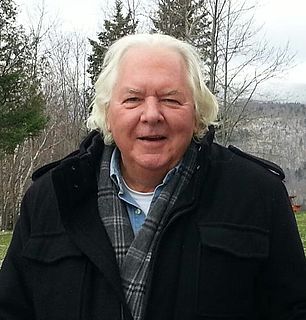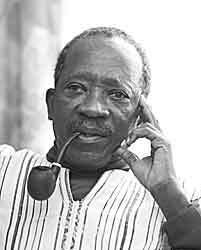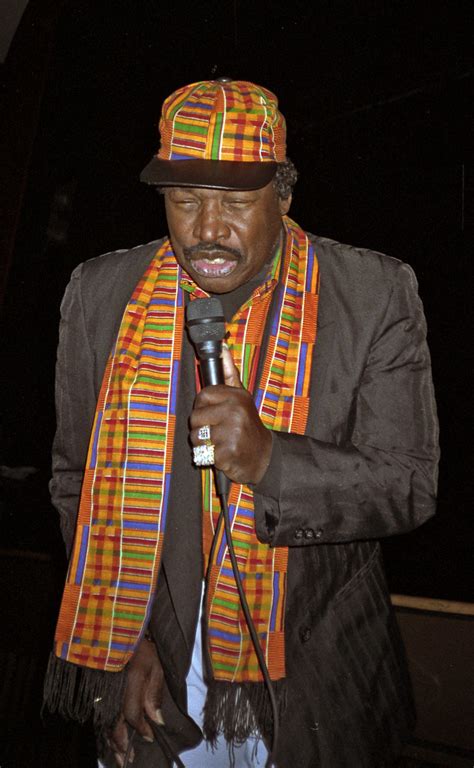Top 1200 Cultures And Traditions Quotes & Sayings - Page 3
Explore popular Cultures And Traditions quotes.
Last updated on December 18, 2024.
When we come back to fantasy, I think we're actually coming back to the real bedrock of storytelling. Our national or international genre really is fantasy, if you think about the worldwide myths and legends and stories that we all know, whether we're talking about Little Red Riding Hood or the Arabian Nights or Noah's Ark or Hercules. These are stories that cross many cultures in much the same way that dragons cross many cultures.
The reason I loved working at Boeing was because I loved the idea of air travel as a way of bringing people and cultures together - because when we come together as people and cultures, we realize that we are not that different after all, and when we realize that we are not that different after all, the world becomes a better place.
A lot of indigenous cultures are deeply involved in working with ancestor spirits, elemental spirits, and demons. Many of these cultures feel that, if you don't deal properly with ancestor spirits, then they come back and infest the living in the form of things like depression, addictive patterns, and neuroses. We in the modern West completely deny the existence of these spirits or other types of entities. And because we've denied them, we may have opened the gates for them to manipulate us in a lot of ways.
Modern art to me is nothing more than the expression of contemporary aims of the age we’re living in. All cultures have had means and techniques of expressing their immediate aims – the Chinese, the Renaissance, all cultures. The thing that interests me is that today painters do not have to go to a subject matter outside of themselves. Most modern painters work from a different source, they work from within.
Wilderness is the raw material out of which man has hammered the artifact called civilization. Wilderness was never a homogenous raw material. It was very diverse. The differences in the product are known as cultures. The rich diversity of the worlds cultures reflects a corresponding diversity. In the wilds that gave them birth.
In general, in more collectivist cultures, we see that in group settings, people dampen their emotions but are very expressive when they are at home alone. In more individualistic cultures, such as North America and Europe, it's the opposite - people are more expressive in group settings than when they are by themselves.
To put it in a nutshell, the Central and South American high cultures of antiquity were entirely worthy of comparison with what the Old World had achieved by the time of the Han, the Gupta, and the Hellenistic age. The fact is that the Amerindian high cultures were a human modality of their own, and those Spaniards who came among them first would have had the sensation, if they had ever heard of such literature, of treading in a world of imaginative science fiction. But it was real, and the Amerindian achievements deserve all our sympathy and praise.
We usually forget that apart from making a living on this earth, human beings live in societies and these societies have cultures. It is only through having cultures that mankind on this earth has an ordered and meaningful life. Music and drama are two of the many important manifestation of a culture. They are important because they represent the expressions emanating from the power of human artistic creativity
In a city like London, the fact that cultures live together and cross-fertilize is a beautiful and natural thing. The many cultures in Amsterdam contribute to the city's high level of craziness - something which every interesting city should offer. But sometimes immigrants can live in parallel worlds which can exclude others and not be very attractive.
You know, people come from cultures all around the world. Many of those cultures, you know, are not terribly successful. You can tell because you go to the countries and they're doing really poorly, and a lot of why they're doing poorly is because of the outlook, mind-set, and behavior of the people.
In our society, talking about sex is still a taboo, and of course many village chiefs don't want to hear about that issue. "You are trying to deviate us from our way of life, our traditions." And of course the argument they give is that these traditions date back to before our birth, and actually they accuse us of being funded by the outside world to subvert their way of life.
Build creative cultures, and work with purpose to unleash the creativity of your team. Creativity is the most valuable natural resource in any organization, yet it is often a resource that is largely untapped. The leaders that prioritize and invest in creative cultures will be the wall street darlings of tomorrow. In fact, they're the darlings of today (Facebook, Groupon, LinkedIn, etc).
Religion is important for humanity, but it should evolve with humanity. The first priority is to establish and develop the principle of pluralism in all religious traditions. If we, the religious leaders, cultivate a sincere pluralistic attitude, then everything will be more simple. It is good that most religious leaders are at least beginning to recognize other traditions, even though they may not approve of them. The next step is to accept that the idea of propagating religion is outdated. It no longer suits the times.
It's not as though there aren't many, many art works and many other cultures, but there was something special about the civic nature of the Greek theater. All the citizens stopped working. They came into these theaters. It wasn't like a Broadway theater where you sit in the dark and you expect to be passively entertained. You're in this theater, amphitheater, in bright sunlight looking at your fellow citizens, recognizing their faces, and thinking with them about the future of your city. I think very few cultures have had a theatrical tradition that is quite so civic.
I am very, very proud I am also Turkish and both of my parents are from Turkey. I was born in Germany and grew up there. By playing football, I learned my different cultures, and that is an advantage if you grow up as a person. You get a different view on certain things. I am very, very thankful I was able to pick the best from many cultures.
There are thus two tasks for the Mass Media division of Unesco, the one general, the other special. The special one is to enlist the press and the radio and the cinema to the fullest extent in the service of formal and adult education, of science and learning, of art and culture. The general one is to see that these agencies are used both to contribute to mutual comprehension between different nations and cultures, and also to promote the growth of a common outlook shared by all nations and cultures.
The saying "no self, no problem" probably comes from Zen. In their cultures, where Buddhism is kind of taken for granted, as well as karma, causality, former and future life, and the possibility for becoming enlightened, then it's safe to skirt the danger of nihilism, which would be, I don't exist because Buddha said I have no self, and therefore I have no problem because I don't exist. That would be a bad misunderstanding. But in those cultures, it would not be as easy to have that understanding as it would be here in the west, where we really are nihilistic.
I do not feel that the West has really become less condescending toward foreign cultures than the Greeks and Romans were: it has only become more tolerant. Mind you, not toward Islam—only toward certain other Eastern cultures, which offer some sort of spiritual attraction to the spirit-hungry West and are, at the same time, too distant from the Western world-view to constitute any real challenge to its values.
I think there's a general confusion that my work is about types of photography. But really that's just a tool to introduce some questions I have about seeing. What happens when all of these conditions and structures and histories and cultures and tools you have around you begin to fail? On the one hand there is an engagement with histories and cultures, and on the other, there is this very lonesome space of actually coming to terms with seeing.
Human cultures are all experiments in trying to find a form that will fit the matter of our immediacy; but it is absolutely not the case that all such experiments are of equal merit or value. Some cultures - and modernity is patently one - have managed to transmute consciousness into the "disease" that Nietzsche called it, the self-affliction of a self-centeredness that has purged itself of all vestiges of wisdom and value.
Normal children of both sexes and all cultures will follow a more or less standard and universal developmental pattern and timetable, and reach approximately the same level of development at maturity. While a particular culture's need and expectations and teaching will shape the course of development and affect adult capabilities to some degree, normal individuals, whatever their native culture, if transplanted and taught, could learn to meet the normal demands of their adapted cultures.
Throughout human history, people have developed strong loyalties to traditions, rituals, and symbols. In the most effective organizations, they are not only respected but celebrated. It is no coincidence that the most highly admired corporations are also among the most profitable. Why? Because everyone involved is committed to certain non-negotiable core values. Traditions keep them alive. Rituals such as special occasions reaffirm them. Symbols serve as constant reminders of their enduring importance.
Great cycles of history began with vigorous cultures awakening to the needs of children, but collapsing with frayed family ties. Have we failed to learn lessons which Ancient China, Greece and Rome learned too late - about day care and death houses for old folks? Do we without protest accept accelerating preschool and nursing home cultures which warn ominously that the earlier you institutionalize your child, the earlier he will institutionalize you!
There seems also to be a tremendous risk to indigenous cultures if we insist that all scholarship be conducted in English. We are, for example, dealing with ancient and very highly-developed cultures in Korea, Japan, China and the Middle East. What is the impact on cultural and scholarly vitality forcing everyone to do their work in English? I do not have an answer, but this issue has been very much on my mind.
Each country has its own particular features, its own traditions that find their reflection today and will find it in future. There are such traditions in Russia but it is not a question of a strong figure, although a strong figure is needed in power, it is a question of what is implied by this term. It is one thing if it is a person with dictatorial tendencies. But if it is a fair leader, who acts within the law and in the interests of a vast majority of society, who acts coherently and is guided by principles, it is a completely different matter.
Fear is so fundamental to the human condition that all the great spiritual traditions originate in an effort to overcome its effects on our lives. With different words, they all proclaim the same core message: "Be not afraid." Though the traditions vary widely in the ways they propose to take us beyond fear, all hold out the same hope: we can escape fear's paralysis and enter a state of grace where encounters with otherness will not threaten us but will enrich our work and our lives.


























































